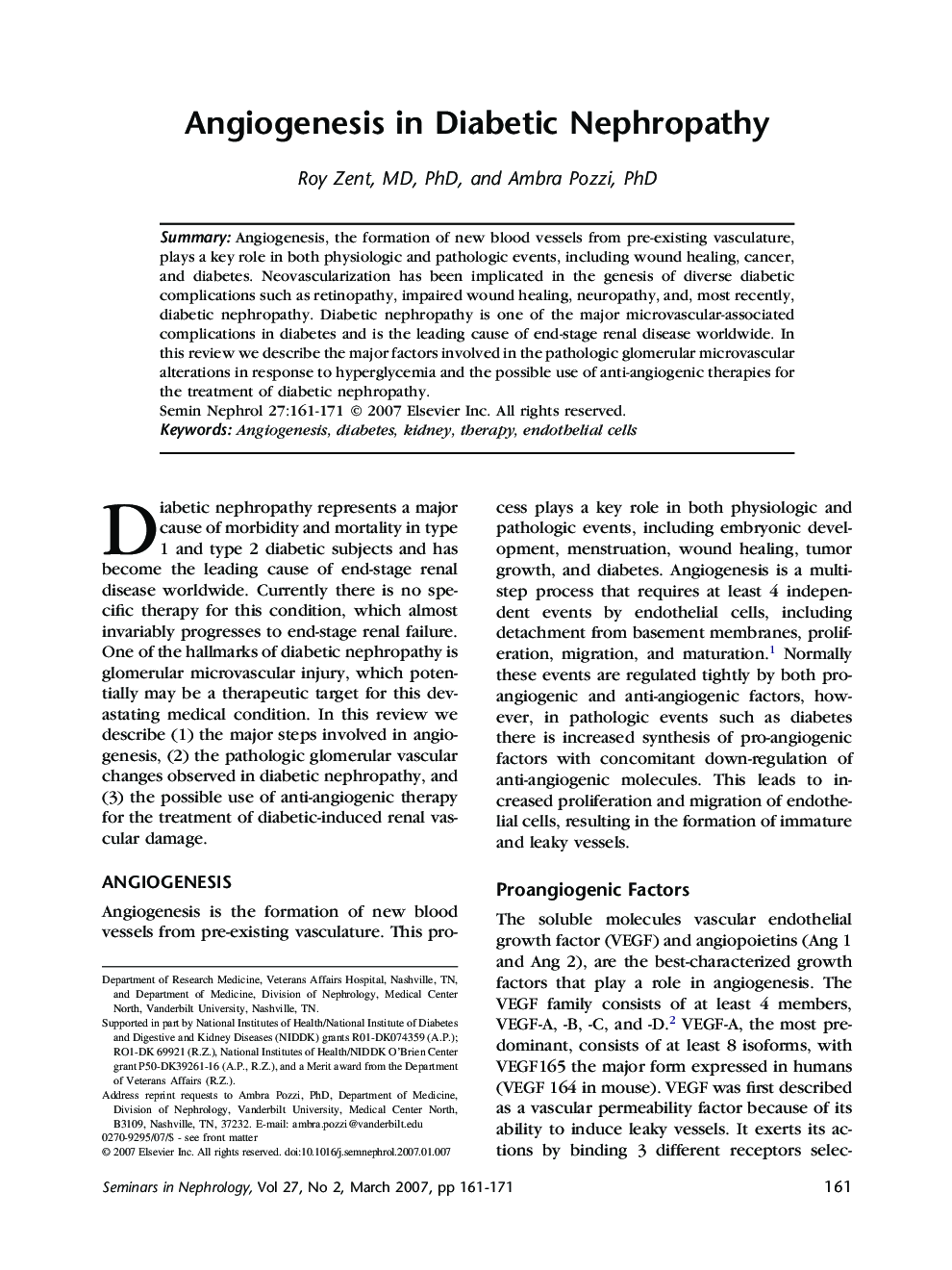| کد مقاله | کد نشریه | سال انتشار | مقاله انگلیسی | نسخه تمام متن |
|---|---|---|---|---|
| 3897340 | 1250251 | 2007 | 11 صفحه PDF | دانلود رایگان |

SummaryAngiogenesis, the formation of new blood vessels from pre-existing vasculature, plays a key role in both physiologic and pathologic events, including wound healing, cancer, and diabetes. Neovascularization has been implicated in the genesis of diverse diabetic complications such as retinopathy, impaired wound healing, neuropathy, and, most recently, diabetic nephropathy. Diabetic nephropathy is one of the major microvascular-associated complications in diabetes and is the leading cause of end-stage renal disease worldwide. In this review we describe the major factors involved in the pathologic glomerular microvascular alterations in response to hyperglycemia and the possible use of anti-angiogenic therapies for the treatment of diabetic nephropathy.
Journal: Seminars in Nephrology - Volume 27, Issue 2, March 2007, Pages 161–171